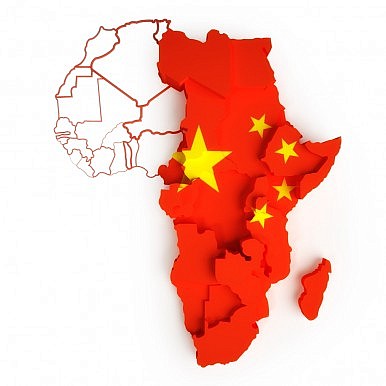
Xi welcomed “Djibouti’s participation in developing Beijing-proposed 21st-century Maritime Silk Road in proper ways.”
However, in light of last week’s bombshell that China has chosen this sleepy East African nation to house its first military base, giving such a warm embrace to Djibouti’s “proper” participation in the Maritime Silk Road is, quite frankly, startling.
On November 26, the Chinese government signed a 10-year agreement with IOG’s Djibouti to set up a navy base to serve as a logistics hub for the People’s Liberation Army-Navy (PLA-N) ships engaged in anti-piracy operations off the coast of Yemen. According to earlier media reports, the base would cost some $100 million a year and would be based in the northern Obock region, from where a small American outpost was evicted earlier in August.
But why did China bestow the honor of its first military base on Djibouti? There are a number of considerations to be taken into account here. For one, Djibouti is a fairly stable country (barring Guelleh’s crackdowns on anything resembling Western democratic aspirations) and sits astride the strategic trade route linking the Suez Canal to the Indian Ocean. From Djibouti, China’s Shaanxi Y-8 class maritime patrol aircraft can cover most of the Arabian Peninsula and northern and central Africa without refueling. Secondly, Djibouti’s port can accommodate vessels drawing up to 18 meters of water, including China’s aircraft carrier or its largest forward-deploying warship, the Type 071 LPD. Thirdly, basing an installation in Djibouti makes strategic sense as well, since Obock is an eavesdrop away from the US’s sole bricks and mortar installation on the African continent from where Washington conducts its infamous drone strikes on al Shabaab and al Qaeda targets. And lastly, because in the past several months Djibouti’s president has reinvented himself into one of China’s strongest allies.
Indeed, just a few years ago it would have seemed improbable for Djibouti to feature high on Beijing’s security agenda. Since becoming president in 1999, Guelleh had mostly relied on aid from the US and France to prop up its kleptocratic rule.
It has long been a topic of hot debate among Sinologists and pundits alike whether the “ One Belt, One Road“ (OBOR) $140 billion plan is in fact an elaborate cloak under which Beijing can disguise its military ambitions. The final aim would be to provide the PLA-N access to a series of ports stretching from the South China Sea to Africa’s East Coast.
Playing the long game in Africa, Beijing was therefore forced to re-evaluate its decade-long strategy of non-interference in the affairs of other states and its mantra that it will never maintain military bases abroad. With bilateral trade expected to top the $300 billion mark this year and with substantial investments in key raw materials that provide employment for more than 2 million Chinese workers, Beijing is currently ill-equipped to ensure the security of its business interests there.
As such, Africa is fast becoming a policy incubator for China’s future global role. Earlier this year, Beijing sent its first ever contingent of combat troops to South Sudan as part of a UN mission as well as assuming the role of mediator between the two warring sides. Opening a military base in Djibouti should therefore fall neatly into this narrative, right? However, looking farther afield, integrating the Obock facility into the Maritime Silk Road framework sends a very strong signal that the militarization of Chinese-owned ports can happen elsewhere, a worrisome prospect for the U.S. and its allies.